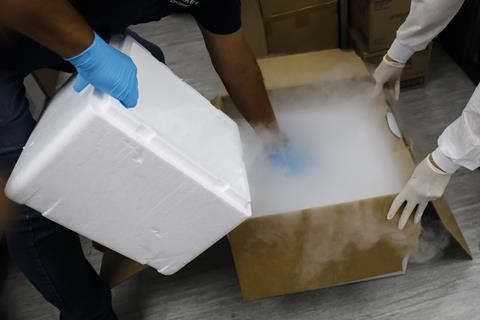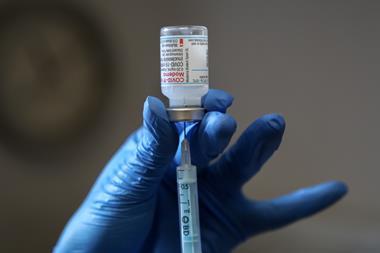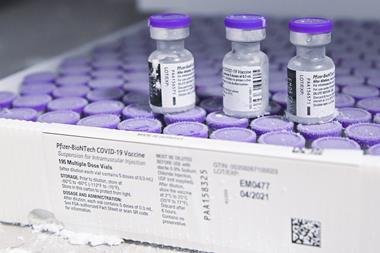Early data provide hope of several effective options

We now have at least preliminary data suggesting how effective the first crop of Covid-19 vaccines will be. And it’s good news. All of the vaccines so far – from Pfizer–BioNTech, Moderna and the University of Oxford–AstraZeneca – appear to be highly effective at preventing infections developing into disease symptoms.
There are some comparisons to be made, and all have their own foibles. The Pfizer–BioNTech effort appears 95% effective but requires a stringent –70°C cold chain. Moderna’s is stable at –20°C and similarly effective, but potentially causes more uncomfortable side effects. The Oxford–AZ candidate is the cheapest and easiest to store and transport (requiring only refrigeration at 2–8°C). However, there are some questions to be resolved over the dosing regimen and its influence on overall effectiveness.
None of these problems is insurmountable. For the last five years, for example, Ebola vaccines requiring ultra-cold storage have been trundling around the Democratic Republic of Congo in dry ice coolers. It will take serious logistical planning to minimise the amount of vaccine that ends up wasted, but the technological solutions already exist (provided there is the political will and funding to support their scale-up and deployment).
The earliest indications also suggest that the vaccines perform well in some of the more vulnerable groups – especially older people, whose immune systems typically respond less well to vaccines. The Oxford team’s report in the Lancet (from its earlier phase 2/3 trial) shows older patients producing similar immune responses to their younger counterparts, while Moderna and Pfizer–BioNtech observed similar protection levels across age, sex and ethnicity demographics. Safety indications from all three are promising, too. As the datasets grow, these numbers should become clearer.
There are also some encouraging signs about the duration of immune responses to the virus. Another team at Oxford has been following a cohort of 12,000 healthcare workers, monitoring their rates of infection with Covid-19 and subsequent levels of antibodies. The results so far suggest protection lasts at least six months after an infection. Whether this will also apply to vaccine-derived protection remains to be seen as trial volunteers continue to be monitored.
And that brings us back to all the questions that the vaccine trials have yet to answer. How long will protection last? How is it affected by age and interaction with other diseases and vulnerabilities? Do the vaccines protect against asymptomatic infection, or reduce people’s ability to spread the virus? How do they perform once we remove the restrictions of wearing masks and social distancing? All these things will take time and data to provide meaningful answers to. But for now it looks like we’re on the right track.

















No comments yet